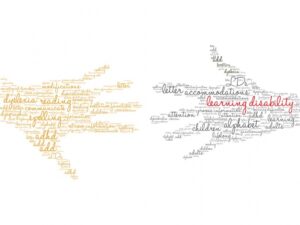
Exceptional Students and Private Schools
You may have heard that “private schools do not provide services for students who have disabilities or exceptionalities.” However, this is actually a common misconception. While private schools are not required to provide these services, most have programs in place to help meet the needs of all of their students.
ADHD in the Classroom
With the prevalence of children with ADHD on the rise, every educational institution will be serving students in need of accommodations from a traditional learning environment. According to the Center for Disease Control, almost 11 percent of children ages 5-17 will be diagnosed with ADHD (2015-2017).
The Attention Deficit Disorder Resource Center suggests most parents will notice symptoms around the time their child enters school, if not before, and are most likely to be diagnosed by the age of seven. The likelihood that this disorder hits parents close to home is really high.
One local mom’s son who was diagnosed with ADHD and anxiety attended private school until this school year. She shares that she noticed some changes in his behavior. “Although he is very brilliant, he was getting in trouble in class for being disruptive and he was not completing his work or turning it in on time,” she says.
After visiting with a psychologist at Louisiana State University for a psychoeducational assessment, she learned about his ADHD and anxiety diagnosis. She was able to bring these concerns to her then private school. The school was able to work with her son to provide “small group testing, preferential seating, and extended time that allowed for a calm environment, thus helping to reduce his anxiety.”
Parental input is often critical to the school in helping to develop a plan that works best for each student both at school and at home. Local child psychologist Dr. Lynn Schechter provides some specific examples of behavior management techniques she uses to create a structure for children with ADHD.
For preschool and elementary school children, she suggests implementing a highly structured day with emphasis on rules and routines. One way to help establish this is through a rewards system. Parents can select a specific behavior they want their child to complete, and when they do complete the behavior, he or she earns a reward.
“Of course, it is critical that parents be consistent and use the chart every day. High structure in each day is very important,” says Dr. Schechter.
For middle school children, Dr. Schechter emphasizes the importance of providing the kids with the tools they need to feel confident and reduce stress, like teaching effective study skills and time management techniques.
Since private schools have more flexibility and access to different resources, they may be more apt to address certain needs of students who have ADHD, as well as other specific disabilities.
Students with IEPs
The United States Department of Education requires an IEP or Individualized Education Program under the Individual with Disabilities Education Act (IDEA) for students who receive special education and related services in a public school.
A student diagnosed with Attention Deficit Hyperactivity Disorder (ADHD) and/or other disabilities may be eligible for an Individualized Education Plan or IEP based on the Individual with Disabilities Education Act (IDEA) in a public school. Depending on the student, an IEP may not be indicated, but instead, a Section 504 of the Rehabilitation Act plan may be better.
Federal funding received by private schools indicates whether they are required to follow the same educational laws that public schools are bound to. Renee Yesso, school counselor at Brighton School, explains, “Generally, private schools create their own accommodations, rather than using the ones in the public school system.”
The Brighton School in Baton Rouge specializes in serving area K-12 students with dyslexia and other related learning differences. “To be admitted, it is preferred that a student have a full psychoeducational evaluation from a psychologist. There are recommendations for accommodations in those, but we also create our own plan highlighting that student’s needs using the evaluation, parental input, student input depending on age, and teacher input,” says Yesso.
Often, the difference in how public and private schools serve students with disabilities are the resources that are available to serve them at the individual school, and the source of the psychoeducational evaluation occurring outside of the school or school system.
Where to Find Help
Private schools work closely to put together their own plan if they have the resources and staff to assist the student. Another practical example is The Dunham School’s McKay Academic Center. This in-school center focuses on providing resources to help all their students, while offering reading and dyslexia remediation, individual and small group courses, and classroom accommodations to identified students.
If your student is currently attending a private school and you find that your child is experiencing problems in the classroom, it's important that you talk to your child's school about how the school can help. The school may be able to refer your child for testing in the community to help identify any potential issues you may not be aware of.
LSU’s Psychological Service Center offers this testing, along with psychotherapy services for adults, adolescents and children in the community on a sliding scale.





